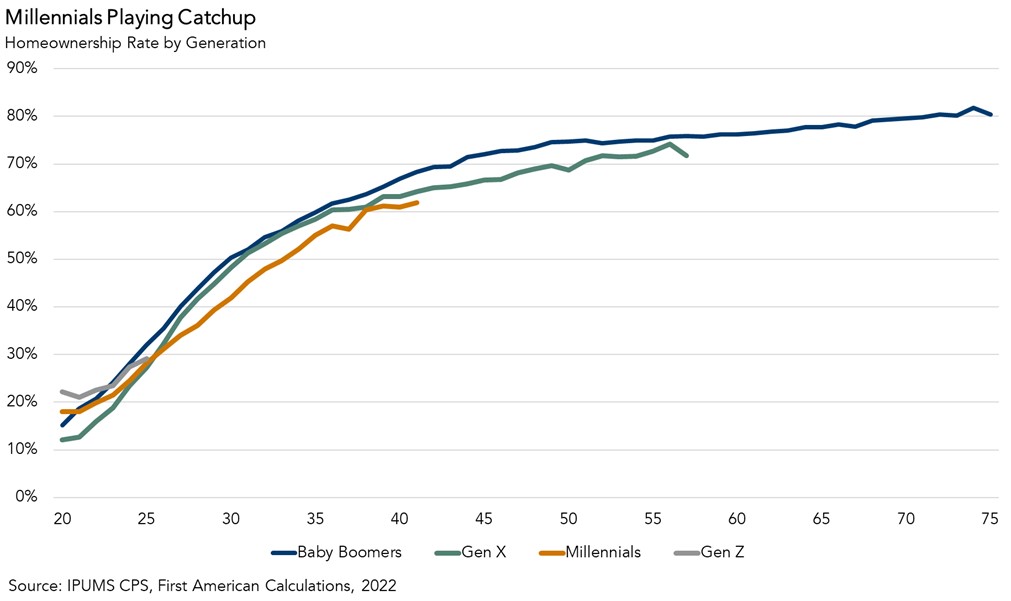Amid the roller coaster housing market of the past few years, National Homeownership Month presents an opportunity to examine a fundamental driver of homeownership and housing demand—demographics. In fact, there’s one generation in particular that will remain a driving force of homeownership demand for years to come—the millennials.
"Millennials are not only interested in homeownership but, as of 2022, the majority of millennials—51 percent—are homeowners, according to Census Bureau data."
Gone Are the Days of the Renter Generation
Millennials are the largest generation in U.S. history. In 2022, the oldest millennial turned 41 years old and the youngest was 26 years old. A common misnomer regarding the millennial generation once was that they were destined to be a generation of renters—avocado toast, anyone? With student loan debt burdens, the scars of the Great Recession, and tight housing inventory, it’s understandable why many reached this conclusion.
Despite this popular opinion, millennials are not only interested in homeownership but, as of 2022, the majority of millennials—51 percent—are homeowners, according to Census Bureau data. Many demographic and lifestyle factors point to a generation that is aging into their prime home-buying years. The bulk of the millennials are over the age of 33, nearly half are married and approximately 40 percent have a bachelor’s degree or higher, making millennials the most educated generation in American history.
In prioritizing their education, millennials have delayed marriage and family formation relative to previous generations. The delay of these key lifestyle decisions, which are correlated with the transition to homeownership, has translated into a delay in the homeownership rate for millennials compared with their generational predecessors. At age 30, 42 percent of millennials owned homes, compared with 48 percent of Gen Xers at the same age. Over the past decade, however, millennials have significantly narrowed this gap. At age 41, the millennial homeownership rate is 62 percent, while Gen X stood at 64 percent.
Millennials’ investment in education is paying off. Higher educational attainment increases earning potential, which in turn boosts house-buying power and increases the likelihood of purchasing a home. Millennials’ pursuit of higher education may have delayed their transition to homeownership, but it gives them a boost now that many are finally making that transition. In 2022, a third of primary home purchases were by people age 25 to 34, which includes mostly millennials, along with older Gen Zers.

Headwinds and Tailwinds
Millennials still face headwinds in the housing market, ones that have only been amplified by the pandemic. Historically low mortgage rates at the start of the pandemic, combined with a shortage of homes for sale, fueled bidding wars and pushed house price appreciation to double-digits. Then, mortgage rates jumped up nearly four percentage points in a single year, causing affordability to fall, and pricing out many potential first-time home buyers as a result.
Despite these headwinds, millennials will remain the driving force behind homeownership demand for years to come. Their preferences around location, housing amenities, the home-buying experience and more will continue to shape the housing market. So, are millennials destined to be a generation of renters? The data suggests a resounding no.

.jpg)

